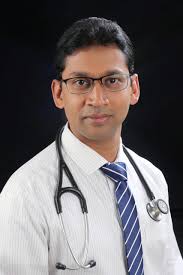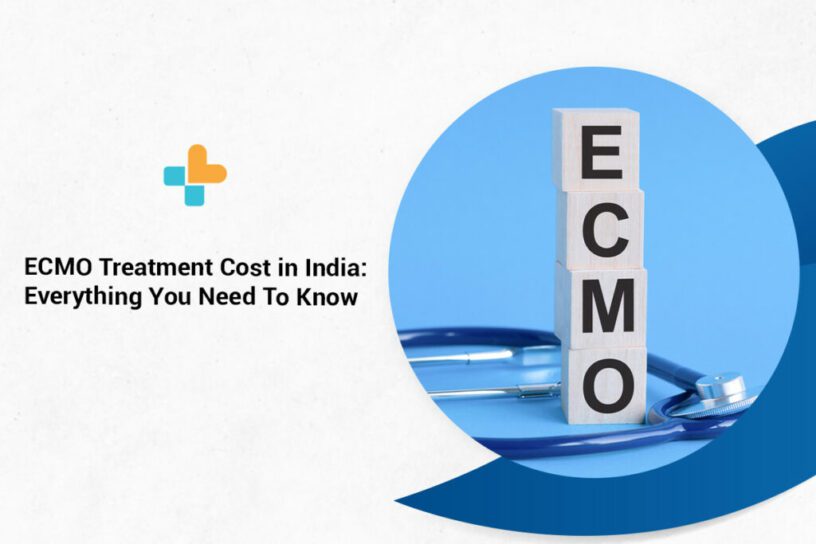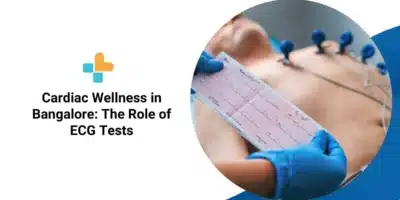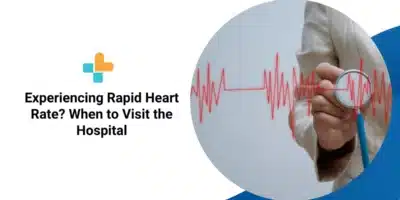The world underwent an unprecedented shift during the peak of the COVID-19 pandemic. The health care system was in distress, looking to find effective treatments to save lives and treat them efficiently.
Initially developed in the 1960s, ECMO treatment was created to help newborns and infants with respiratory issues and cardiac abnormalities. Only recently was it adapted to treat adults.
Because respiratory distress is one of the key issues of a COVID-19 patient, ECMO treatment was commonly used to treat respiratory issues.
The ECMO machine is primarily used to stabilize patients by supporting their hearts and lungs.
In this article, we’ll look at what ECMO treatment is, its benefits and risks, ECMO treatment cost in India, and some options.
ECMO Treatment Cost in India
ECMO treatment cost in India varies from hospital to hospital and also depends on the type of treatment and set-up of the machine.
In India, on average, the ECMO machine costs over 35 lakhs INR, and the procedure costs between 1.5 lakhs–3 lakhs INR per day.
What Is ECMO Treatment?
ECMO treatment (extracorporeal membrane oxygenation) is an extracorporeal means of prolonging cardiac and respiratory functioning in people whose hearts and lungs can’t provide adequate amounts of gas exchange and perfusion to sustain life.
In an ECMO treatment, blood is pumped outside of your body into a heart-lung machine. This machine primarily removes carbon dioxide and sends oxygen-filled blood back into your body.
The blood flows from the right side of your heart into the machine’s membrane oxygenator and is then returned to your body.
What Is ECMO Treatment Used For?
ECMO treatment is used in critical care situations when your heart and lungs require assistance in order for you to heal.
In many cases, it’s used as life-support after a surgery or when you’re extremely ill. It’s used to treat COVID-19, ARDS, and other infections.
Whether or not you’ll need an ECMO treatment is decided by your doctor. If you need it, your doctor or a trained respiratory therapist will prepare you for the treatment.
What Are the Types of ECMO Treatment?
There are two types of ECMO treatment: venovenous (VV) ECMO and venoarterial (VA) ECMO. Both of these methods remove oxygen-depleted blood from your veins.
Venovenous ECMO Treatment
This type of ECMO treatment returns oxygenated blood to the veins, where it is processed by the lungs. Doctors prescribe this treatment to patients that have problems with the lungs and not the heart.
VV ECMO gained much popularity as a treatment for refractory respiratory failure during the 2009 influenza pandemic. In recent times, it has been used as a therapeutic intervention for the coronavirus.
Venoarterial (VA) ECMO Treatment
VA ECMO returns oxygenated blood to the arteries. Unlike VV ECMO, it does not enter the lungs. This treatment is used when there are issues with both the heart and lungs.
In the past decade, VA ECMO has been increasingly used to support patients with cardiopulmonary collapse.
How Does ECMO Work?
ECMO essentially works by acting as the patient’s lungs and heart.
Below is a step-by-explanation of how ECMO treatment is carried out.
- A plastic tube is inserted into a large vein and/or an artery in the patient’s neck or chest. This tube allows the patient’s blood to flow into an oxygenator, commonly known as the artificial lung.
- This oxygenator adds oxygen to the blood and removes carbon dioxide before it is pumped back into the patient through a separate tube at the same frequency and force as the heart.
- The ECMO circuit relies on a motor to pump the blood around.
Now, one might think that since the ECMO machine acts as your heart that your actual heart stops working during an ECMO treatment. That’s not entirely true. During the treatment, your heart continues to beat, but its work is made much easier because the ECMO machine does most of the pumping.
When Would You Require an ECMO Treatment?
You would require an ECMO treatment when either your lungs or heart (or both) aren’t functioning properly.
Here are some situations when you’d require it:
- when your lungs cannot deliver enough oxygen to your body, even when extra oxygen is provided;
- when your lungs cannot expel enough carbon dioxide, even with the help of a ventilator;
- when your heart is unable to pump enough blood through your body; and
- when your heart and lungs require assistance as you go through an organ transplant.
Benefits of ECMO Treatment
ECMO provides multiple benefits. Here are some of the important ones.
- The main advantage of ECMO is that it can maintain the supply of oxygen to the body while resting the lungs.
- The pumping ability of an ECMO machine can provide support for reversible heart disorders when required.
- Unlike a ventilator, the ECMO machine allows the lungs to rest while the body heals from any damage.
Are There Any Risks With ECMO Treatment?
While it’s a mostly safe and highly-effective treatment, there are also risks associated with ECMO. Here are the most common ones.
- The main risk during ECMO treatment is bleeding. Heparin is used to prevent blood clotting, which might cause bleeding.
- There’s an increased risk of blood clotting (thromboembolism) or blood clotting disorder (coagulopathy).
- ECMO requires transfusions of blood, and like any other blood transfusion, there is always a risk of infection.
- Stroke is also another risk if a part of the brain is damaged due to the loss of blood or by a blood vessel that bursts.
Final Thoughts
ECMO treatment has gained much popularity in the last decade with the rise of many heart and lung-related diseases.
While it does pose certain risks, ECMO treatment is almost always effective and has helped save many lives.
Please note that the treatment does not cure diseases or injuries as such; it’s only a tool or method of supporting your body as the doctors fix the underlying issue. To know more about the breakdown of the costs and the specifics of the ECMO treatment cost in India, reach out to us at Ayu Health!
Our Hospital Locations
Cardiology Surgery Hospitals in Chandigarh | Cardiology Surgery Hospitals in Bangalore | Cardiology Surgery Hospitals in Jaipur | Cardiology Surgery Hospitals in NCR | Cardiology Surgery Hospitals in Hyderabad
Our Doctors
Cardiology Surgery Doctors in Chandigarh | Cardiology Surgery Doctors in Bangalore | Cardiology Surgery Doctors in Jaipur | Cardiology Surgery Doctors in NCR | Cardiology Surgery Doctors in Hyderabad
About the Author

Dr. Magesh Balakrishnan
Dr. Magesh Balakrishnan is a renowned cardiologist currently practicing at Ayu Health, Bangalore.
He has 16 years of experience in this field. He has excellent skills in performing all cardiac diagnostic procedures/ tests. He has performed emergency and elective angiographies and angioplasties, device implantation (Pacemaker, AICD & CRT)




